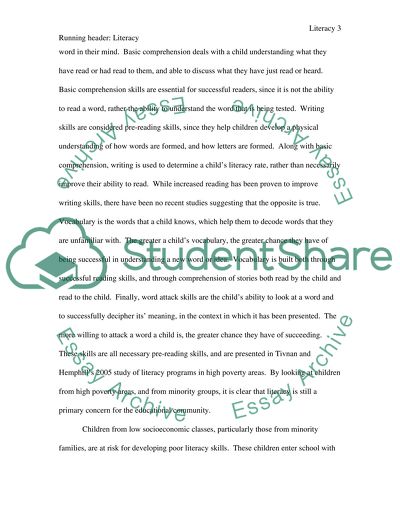Cite this document
(Literacy and First Graders Article Example | Topics and Well Written Essays - 1250 words, n.d.)
Literacy and First Graders Article Example | Topics and Well Written Essays - 1250 words. https://studentshare.org/education/1513094-literacy-and-first-graders
Literacy and First Graders Article Example | Topics and Well Written Essays - 1250 words. https://studentshare.org/education/1513094-literacy-and-first-graders
(Literacy and First Graders Article Example | Topics and Well Written Essays - 1250 Words)
Literacy and First Graders Article Example | Topics and Well Written Essays - 1250 Words. https://studentshare.org/education/1513094-literacy-and-first-graders.
Literacy and First Graders Article Example | Topics and Well Written Essays - 1250 Words. https://studentshare.org/education/1513094-literacy-and-first-graders.
“Literacy and First Graders Article Example | Topics and Well Written Essays - 1250 Words”. https://studentshare.org/education/1513094-literacy-and-first-graders.


